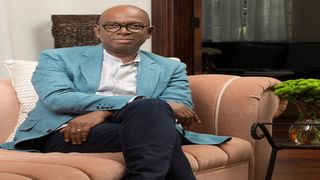
Bob Collymore.
|Bob and I
Bob Collymore’s humility was like a striking garment that he was always clad in for those he interacted with closely in his time at Safaricom. It stood out whether he was in a boardroom or out in the open. Here, three of the hundreds of people he interacted with closely as Safaricom CEO recollect the impressions he left on them.
Bob Osiri, bodyguard
Bob often surprised George Osiri, his bodyguard, who would often double as his driver, and he recalled in an interview last week how Bob caught them off-guard while on a trip to the Coast. He was accompanied on the trip by his wife Wambui and they wanted to go for dinner.
“They insisted on going alone and took a tuk tuk yet we had a vehicle at their disposal. When they became adamant about going alone, we asked that they at least tell us where they were going so that we know how to position ourselves and watch from a distance,” George recalled.
Kennedy Nene, driver
After spending hundreds of hours chauffeuring Bob between his home and the office and many other engagements, Kennedy Nene described his former boss as an ‘easy, humble guy’ who preferred having the car radio tuned to BBC.
They had first met when Kennedy, then working for a tour and travel firm, drove Bob while on a trip to Western Kenya. Soon after, Safaricom was hiring drivers, including one for the CEO. Kennedy applied and at the tail end of the interviews, went in for a session with Bob.
“He remembered me and insisted that I be the one to drive him,” Kennedy says.
This marked the beginning of a closeness that went on to the time of Bob’s demise.
Elizabeth Njoroge, Executive Director of Art of Music
Elizabeth recalled Bob’s emphasis on inclusivity as they worked together to establish the Safaricom Youth Orchestra. “He did not want the orchestra to comprise purely of children from one social strata. He wanted the orchestra to be something that united the children,” says Elizabeth.
In music, Bob’s keen pursuit of inclusivity and love for children mixed. He supported Ghetto Classics, a programme that brings music to children in informal settlements.
“Just like with the youth orchestra, he knew all the children. He opened himself up to them in a way you would not expect the CEO of a big company to do. He dropped all his walls when it came to the players at Ghetto Classics. He gave out his personal phone number, remembered upcoming life events, helped design life goals and was a friend, adopted father and mentor to whoever he felt needed it. He was invested and that made all the difference,” Elizabeth recalls.

